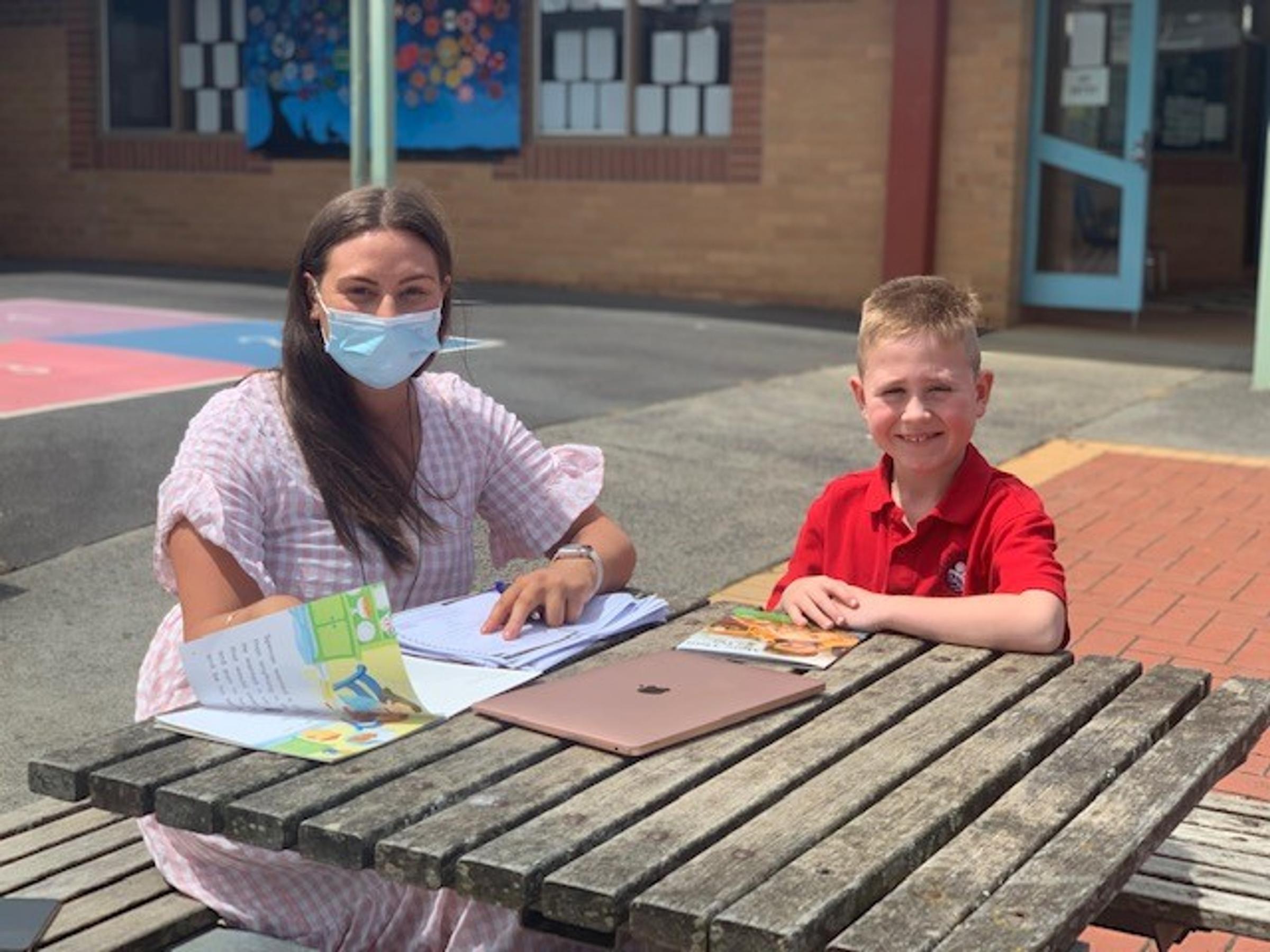Assistant Principal's Page

Returning to School
We are very excited to have our students returning to school next week. Please see the article below from the Raising Children Network which has some excellent advice.
Children’s feelings about the return to school after lockdown
Children might have mixed feelings about returning to school. For example, they might be excited and eager to get back to face-to-face learning and seeing their teachers and friends. They might also feel uncertain, worried or anxious about catching up on learning, fitting back into friendship groups and coping with a school routine.
If your child has strong emotions about returning to school, give your child plenty of love and support at home. These ideas might also help:
- Be confident and enthusiastic about your child going back to school. This sends your child the positive message that they’ll cope and have fun when they get back into the school routine.
- Talk and listen to your child’s feelings about returning to school, and let them know that their feelings are OK. For example, ‘Yes, it will be great to see Hartley again’, ‘You can see how much the vegie patch has grown’ or ‘It’s OK that your brother is excited and you’re nervous’.
- Let your child know it’s OK to feel nervous or uncertain about returning to school, but reassure them that they’ll get through it. For example, ‘It’s OK to feel unsettled – it’s another big change’, ‘A lot of kids will be feeling the same as you’ or ‘The teachers will tell you what to do’.
- Help your child reconnect with their classmates. For example, you could organise a playdate in the park before the first day back, or practise lunch time conversations.
- Give your child some control. For example, ask what they want for school lunch or what they want to do after school.
- Practise breathing exercises or muscle relaxation activities with your child. These can help if your child is feeling very anxious.
If your child is feeling so anxious that you think it might be hard for them to return to school, it’s good to let the school know in advance. There are plenty of things school staff can do to help. For example, they might be able to pair up your child with a buddy or organise for a teacher or aide to welcome your child at the gate. Or your child might be able to start with short days and build up to full ones.
Practical preparations for the return to school after lockdown
Practical preparations can help the return to school go smoothly for your child. And a smooth transition can help your child with any anxious feelings too.
Here are practical things to do:
- Let your child know when they’ll be going back to school and how things will be different. It’s best to stick to the facts and use age-appropriate language. For example, ‘In the playground, you’ll need to stay in the Year 3 area. Your teacher will show you where that is’.
- Get your child back into their school routines. This includes your child’s bedtime routine and morning routines. You could try doing this the week before your child returns.
- Check your child understands COVID-19 precautions like how to wash hands and wear a mask if necessary.
- Check your child’s uniform still fits and that their lunch box, bags and stationery are ready. You could even have a practice run before the first day.
- If classroom doors and windows are being kept open for ventilation, check your child’s clothes are appropriate for the weather.
- Check that your child knows or remembers how to get to and from school.
- If your child uses an out of school hours care service, let your child know about any changes to the way the service does things.
The early weeks at school after lockdown
Starting back at school can be tiring, especially for younger children. Adjusting to school routines takes time. Schools will probably focus on helping children reconnect with friends and teachers, follow classroom routines, and learn to work in peer groups again. In the early weeks, this might even be more important than learning activities.
It means your child will probably have some ups and downs, and you might not see a lot of academic progress early on. That’s OK. The main thing is for your child to feel positive about being back at school. The rest will come with time and support.
These tips can help during the first few weeks back at school:
- Make sure your child gets plenty of healthy food, physical activity and sleep.
- Make time for doing something special with your child in the afternoon or evening. It could be something that you enjoyed during lockdown, like going for a walk after work. Or it could be a pre-lockdown ritual, like a cuddle and book before bed.
- Keep your family routines predictable, and make time for family activities. For example, try to make time for family meals as often as possible, or have family games or movie nights on the weekend.
- If your child is ready and has enough energy, get them back into some of their usual extracurricular activities.
- Try to stop what you’re doing and listen when your child wants to talk about school. Be patient if your child wants to tell you all the details.
- If your child doesn’t want to talk at all, try a conversation starter like, ‘Tell me one good thing and one bad thing about your day’ or ‘I noticed that you seem very sad today. I wonder why that is?’
- Help your child practise self-compassion if they’re feeling tired or finding it hard to adjust. For example, they could say, ‘I’m trying my hardest. It’s OK if I can’t remember how to do that maths problem’.
Carol Wyatt - Assistant Principal
